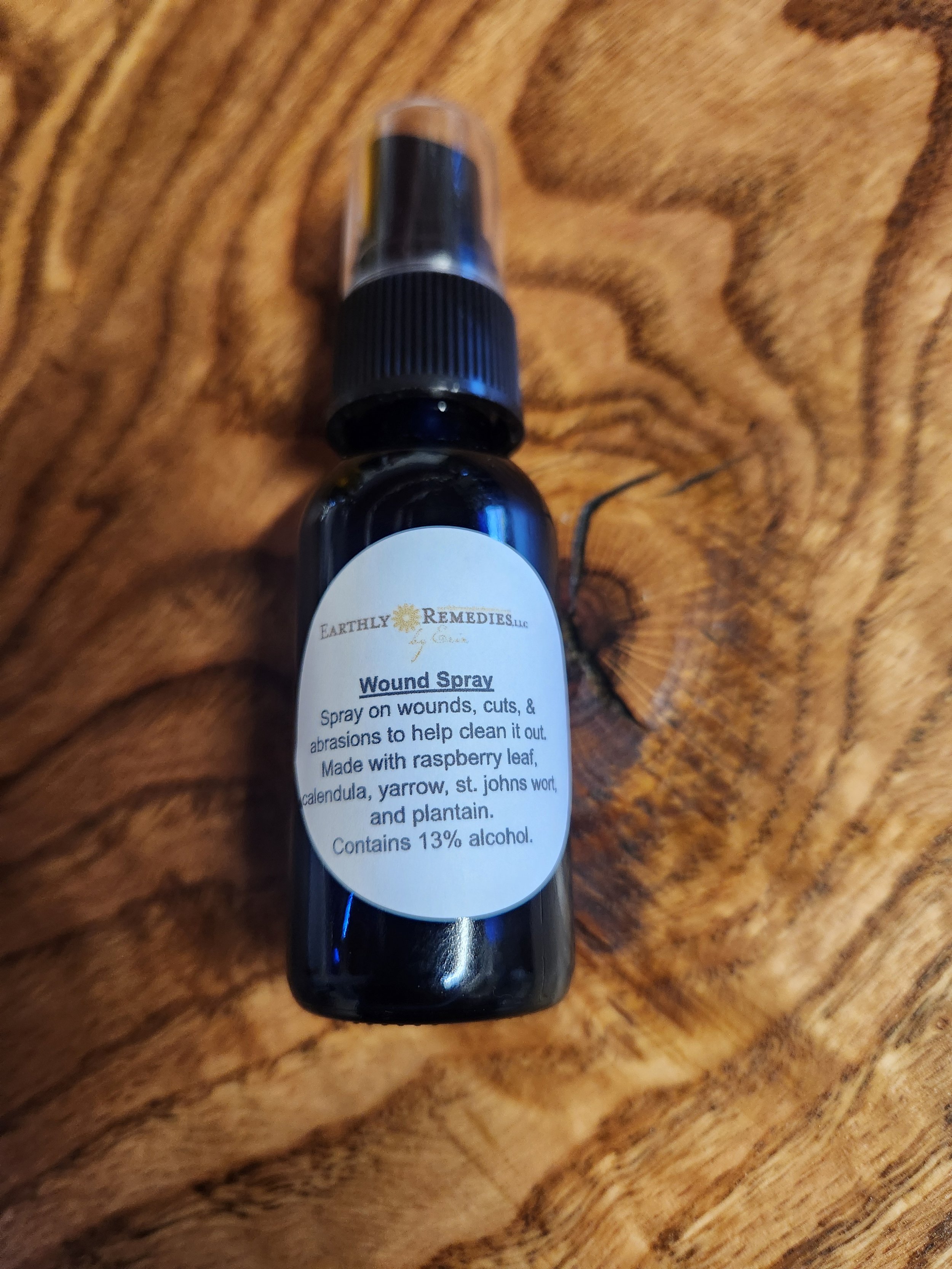
Wound Spray
Wound spray made with red raspberry leaf, calendula flower, yarrow, St. john’s wort, plantain, water, and alcohol. 13% alcohol. Spray on wounds, cuts, and abrasions to help clean it out and sooth. Can keep it in your medicine cabinet along with some healing salve. Safe to use on kids and babies. This can also be used on animals. Has antibacterial, astringent, vulnerary and anti-inflammatory properties. Good to keep on hand in a 1st aid kit!
External use only!!!
Calendula is considered a vulnerary, anti-inflammatory, and astringent herb which makes it great to use for wound healing. It helps to speed up the healing process, helps with stagnation of fluid and inflammation, helps prevent infection and bacterial growth. Matthew Wood talks about how it heals from the inside out. Calendula has long been used to mend cuts, burns, bites, sprains, rashes, and sunburn. It is good for cooling and soothing the skin. It has Antibacterial, antiviral, and antifungal properties. Sajah Popham talks about using calendula for lacerations and puncture wounds. It not only helps heal and prevent infections, but it starts the healing process from beneath and helps to supply the tissue with the lymphatic fluid that it needs. Other herbs that blend well with calendula for wound healing are St. johns’ wort and yarrow.
Yarrow has vulnerary properties along with being antimicrobial and antifungal which makes it good for infected wounds. I love yarrow and I personally feel that everyone should at least have dried yarrow at their disposal. It helps to stop bleeding almost instantly and I think having it on hand for emergencies is necessary
Some of St. John’s Wort’s herbal actions that make it so beneficial for external uses are its anti-inflammatory properties, it is considered a vulnerary (which means it has wound healing abilities), it has antimicrobial properties (which also makes it a good choice for wound healing), and it is an antispasmodic, antiseptic, astringent, and analgesic as well. Good for neuropathy; nerve damage and nerve pain. St. John’s Wort oil can also be used on wounds, cuts, abrasions, bruises, sprains, shingles, and cold sores. I think what I love so much about St. John’s Wort oil is that it works rather quickly as a pain reliever. I have seen some good results when using it for cold sores and on shingles for the rash and pain. You have two things working in your favor: its ability to help restore your nerves and its anti-inflammatory properties. You can use St. johns wort on your face to help with aging spots, sun damage, lines, and wrinkles. I would use it in the morning to benefit from any SPF properties that it has. I wouldn’t depend on St. John’s wort oil to provide you with all your sun protection though - one should still investigate other sunscreen alternatives or wearing a hat. I also love using St. John’s Wort oil on my lips as it just helps to heal if they are dry and split



